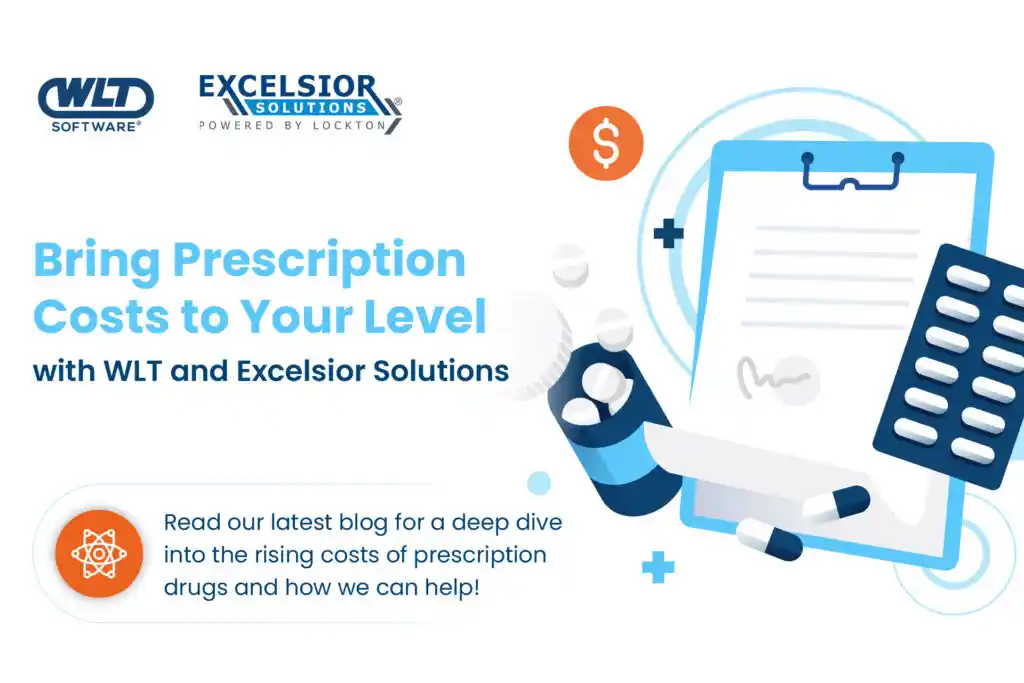The ConnXion – Volume 1, Issue 6
The world of healthcare can be unpredictable and ever-changing, with plans and programs in constant flux. However, one thing does seem to remain a steady constant—prescription drug prices will, one way or another, continue to rise higher and higher. Most importantly, prescription drugs continue to become less and less affordable for those that need them the most.
This is a particularly concerning problem in the U.S. Studies show that Americans have spent more on prescription drugs than almost any other country for years now.1 Average drug costs can range to about $1,300 per person annually. You could take the perspective that Americans just have more prescriptions, but that’s not an entirely accurate take. In 2021, the median launch price for a new drug ran to around $180,000 for a year’s supply.2 Meanwhile, the U.S. healthcare system spent around $603 billion on prescription drugs that same year. January 2022 saw an average list price increase of almost $150 per drug, and by July that number rose to $250. To further add salt to the wound, 2022 saw some drugs increasing list prices by more than $20,000—that’s more than 500%.3
With these kinds of increases battering Americans left and right, it stands to ask an obvious question—why do the costs of prescription drugs continue to rise?
Most experts place the blame on the drug manufacturers themselves, as the Pharmaceutical Care Management Association (PCMA) points out that “pharmaceutical companies alone set and raise drug prices”.4
It is indeed the drug makers that set prices, which makes medications more expensive from the start. The U.S. lacks government regulation when it comes to setting prices, so pharmaceutical companies can set medication prices as they please. Of course, this results in high-cost drugs, especially if those drugs are unique.5
Prices aren’t just high for new drugs, either—pharmaceutical companies are raising the price of existing drugs, as well. This is a particularly concerning category, especially when you take into consideration that many of these drugs are necessary for people to live. Look at insulin, for example. One patient reports that a vial of insulin cost them $24.56 in 2011; in 2018, that same vial now requires them to shell out more than $80. For some, diabetic supplies can cost up to $1,300 a month without insurance.6 That’s a steep price to pay for the right to live.
Does inflation also drive these prices up? Or is it pharmaceutical greed? Perhaps it’s a bit of both, along with the simple desire to make a profit from your work. With inflation running historically high, manufacturers may have the opportunity to hike up prices without triggering a rebate penalty. Whether this forms a vicious cycle of steadily rising prices, the answer remains to be seen.
One thing we do know is that a lack of comparative research across drugs in the U.S. doesn’t help. It’s one thing to search for a drug that will treat a patient effectively, but it’s another to compare every option of obtaining that drug out there. Especially with the unfortunately common belief that cheap can equal ineffective—it’s quite easy to fall under the assumption that high prices are simply the price one pays to feel better.
Additionally, unlike other countries, the U.S. doesn’t negotiate prices with pharmaceutical manufacturers—in fact, the act itself was banned in 2003.5 The Inflation Reduction Act signals a possible ray of hope, as it should give the U.S. government the ability to negotiate drug prices on the higher-priced medications for Medicare beneficiaries. But that won’t go into effect until 2026, so until then, we have to make do with the system in place.
At WLT, we’re always looking to go beyond just “making do”. We’re committed to finding the best ways to help our clients combat prices, which is why we’re excited to highlight our partnership with Excelsior Solutions.
Excelsior Solutions is the nation’s leading pharmaceutical consulting firm that serves as a fair, impartial mediator between health plans, self-funded employers, TPAs, and other payers, as well as their PBM firms. Leveraging first-in-class expertise, along with a bevy of in-house resources to manage pharmacy programs effectively, Excelsior contains cost and holds programs accountable for results.
Excelsior Solutions specializes in customized medication management solutions, outpatient PBM programs, and medical pharmacy medications solutions, all of which work directly to help contain drug prices. WLT’s partnership with Excelsior serves to leverage their aid directly: from optimizing the PBM marketplace, identifying opportunities for cost savings, and developing solid strategies to keep pace with the dynamic marketplace. Backed by improved PBM and vendor arrangements, Excelsior’s impact helps provide a solution to employer groups struggling with impossibly high drug prices, regardless of their size.
While it isn’t an easy pill to swallow, there simply isn’t a clear answer to how much further prescription drug prices will rise year over year. Further involvement by the U.S. government seems to be taking a stab in the right direction, but until any of their efforts go into effect, we’ll be here to do our part in helping to take those costs down, level by level —and through our partnership with Excelsior Solutions, we focus on giving you the options and support your business needs, to do just that.
- https://www.hhs.gov/about/news/2022/09/30/new-hhs-reports-illustrate-potential-positive-impact-inflation-reduction-act-prescription-drug-prices.html
- https://www.bloomberg.com/news/articles/2022-07-19/why-prescription-drug-prices-in-the-us-are-so-high-quicktake#xj4y7vzkg
- https://www.hhs.gov/about/news/2022/09/30/new-hhs-reports-illustrate-potential-positive-impact-inflation-reduction-act-prescription-drug-prices.html
- https://www.46brooklyn.com/research/2022/4/11/medicare-hits-200-billion-in-gross-drug-spend-janx38
- https://www.goodrx.com/healthcare-access/drug-cost-and-savings/why-are-prescription-drugs-more-expensive-in-the-us-than-in-other-countries#:~:text=Lack%20of%20comparative%20research%20across%20drugs&text=It%20is%20often%20easy%20to,they%20are%20less%20familiar%20with.
- https://www.npr.org/sections/health-shots/2018/09/01/641615877/insulins-high-cost-leads-to-lethal-rationing
